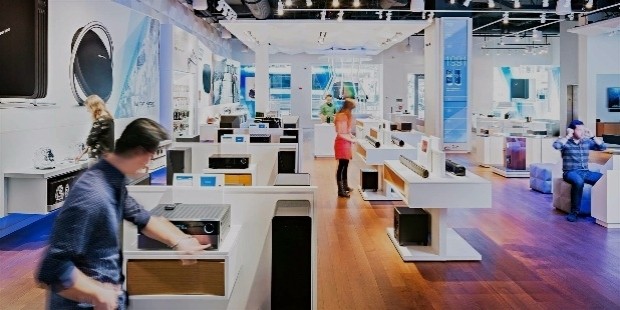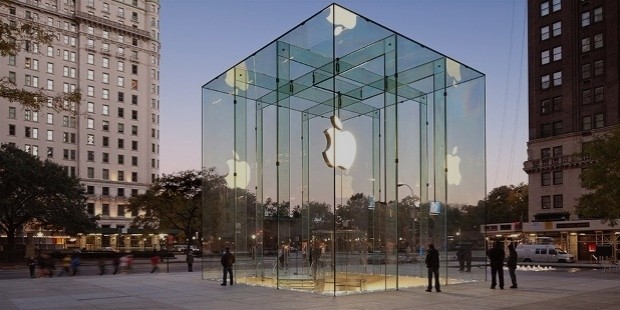Is Good Design Really Essential for Your Business? A SuccessStory Investigation

Here’s a question for you to consider: have you ever paid attention to how a certain product is designed or how a particular service is being advertised? Furthermore, did you think that the aesthetics of the product or service was attractive that you were curious enough to try it out? Most people may not focus on such things, but in the field of business and commerce, good design really does matter. In fact, more and more companies are making a genuine effort to really step up their design game in order to stay ahead of their rivals.
A great deal of what we encounter in our everyday lives has something to do with the elements of design. From the kitchen utensils that we use to cook our food to the various modes of transportation we take to travel around, we use such things on a daily basis that many people take for granted how important good design is when it comes to promoting a service or product. Multiple in-depth studies conducted by market researchers around the world have reported that people are highly responsive to things that are well-designed.

Since this is the case, it stands to reason that the success of a business hinges on whether or not their design—from their company logo and branding to their portfolio of products and services—is something that can attract a broad range of consumers. If you’re a business owner who wants to be on top of the commerce food chain, then you should start caring about implementing a unique yet arresting design that will best represent what your company stands for. Here are some of the key points you need to consider in this matter.
First impressions really matter
Never underestimate the power of first impressions because people are very opinionated and if you don’t grab their attention in a good way at the onset, then you’ll be facing a tough time trying to win them over a second time when you should have charmed them during your first try. Bear in mind that first impressions set the tone for the experience of consumers when exploring a new brand or company, and a great way to make them feel comfortable with your presence is through intelligent design across all aspects.

Everything begins and ends with proper research and planning, so it’s important for you to have in-depth discussions with professional designers from various disciplines—graphic design, product design, interior design, etc.—so that you’ll gain valuable insight on how you can translate your ideas into visually appealing stories. If you’re unsure about what kind of direction you want to take, then speaking to a professional designer could really make a huge difference and get you to where you need to go.
Communication is mostly visual
A lot of people don’t realize that communication isn’t just strictly limited to writing and speaking words; it also involves the delivery of messages and meanings through visual cues that express certain thoughts and ideas. That being said, design matters in the grand scheme of the success of a business since people are hardwired to absorb new information visually. Good design telegraphs the intention of a brand with clarity and confidence, and people can instantly tell whether a business has managed to successfully do that or not.

This is why you need to care about how your products are being packaged or how your website and social media ads look like because you want people to latch on to your business and earn their loyalty in the process. Bad things can happen to businesses who don’t care about great design, so you must be conscious about avoiding anything that could potentially derail the aesthetics of your brand. Here’s a tip: if you can’t even understand your own company’s visual branding, then you need to go back to the drawing board.
Good design keeps people engaged
In a world where society is moving at a technologically rapid rate, it can be hard for most people to acquire longer attention spans since they’re now used to getting everything in quick and short bursts of information. Anything that is not presented well is likely to be dismissed and ignored, and the same principle actually applies when we talk about design. When your business cares deeply about style balancing its substance, then you’ll get a winning formula that will surely bring lots of curious people to your doorstep.

A good example of this is the way you design your showroom where clients are able to browse your products on sale. You can’t just display your stock at random and assume that people will buy stuff just because they’re physically present. If good design is in place, then your showroom would be tastefully decorated with the available items on hand showcased in a way that will immediately appeal to customers. This creates better retail engagement between your sales associates and the consumers who are seeking their assistance.
Public image and perception
The late and great Steve Jobs of Apple once said that design is fundamental to the process of creation that manifests in the final product or service of a company. His words hold a significant amount of truth because people value those companies whose customer service isn’t just impeccable, but also the fact that what they offer to consumers is packaged in a distinctive aesthetic. In short, when you have a visually striking design for your brand, people will immediately associate the style with your company, and this is important.

On the flipside of things, if your business implements a bad design—whether it’s your company logo or how you created your print ads—then people will not react positively, and it creates a negative domino effect that could put your brand in a bad light. Always remember that customer perception is everything, and it’s extremely hard to win back the trust and loyalty of a customer if you’ve let them down with poor design choices. Make sure that you think about your company’s reputation when coming up with design concepts.
Correlation to consumer happiness
Design affects people on a psychological level, and there’s a reason why so many businesses are marketing their products and services that have a strong positive emotion attached to their advertising and packaging. If you look through the pages of a magazine or watch commercials on TV, you’d probably notice that most companies make it a point to promote their brands in a cheerful or upbeat way—and the reason behind that is because good design has a direct connection to the emotional state of consumers everywhere.

Of course, the ideal response should be that people want to be happy every time they get something from your company, or even think positive thoughts whenever they pass by a busy street and see your company logo splashed across a major billboard. A common mistake most businesses make is that they tend to disregard consumer reactions in favor of implementing a cool design idea. A word of advice: just because you think something looks cool doesn’t mean that other people will respond to it the same way as you do.
Business longevity is the goal
Have you ever noticed that some of the most successful companies in the world with long and fruitful histories to their name very rarely change their branding design? That’s because they’re aware that they already have a strong design aesthetic from the very beginning, and that they don’t really need to fix what isn’t broken. Furthermore, they know that if they change or do something completely drastic with their design, it will create a severe backlash from their long-term clients who are very resistant to abrupt changes.

When your brand aesthetic is durable from the very start, then there’s a strong chance your business will enjoy a really long and prosperous future. You want your design to be so foolproof and instantly recognizable to consumers that it will stand the test of time, and all businesses want to stay in the market for as long as possible. Moreover, really great design means that you won’t have to do change much about your style, and thereby it saves you plenty of time and money that could be allocated to other business priorities.









